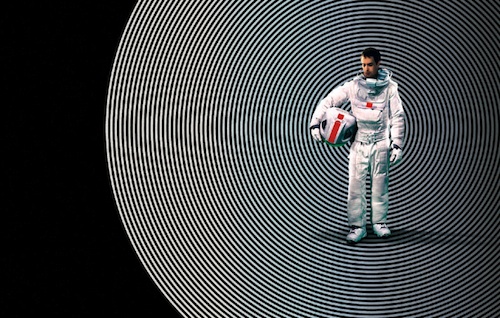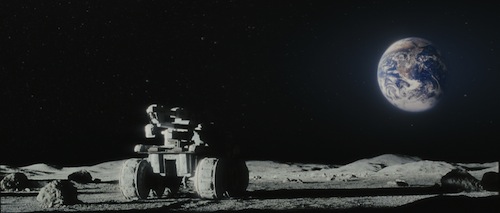
Moon, the new film from director Duncan Jones, harks back to a time when science-fiction films were about moods and ideas rather than giant robots and even larger explosions.
It’s a slow-burning, mesmerising piece of work that takes its inspiration from a range of classic sci-fi films made between the late 1960s and early 1980s including Solaris, 2001: A Space Odyssey, Outland, Alien and Silent Running.
Jones, the son of David Bowie, evokes the loneliness and terror of space that his father sang about in Space Oddity. He spins out questions about the effects of isolation on the human mind, the costs of scientific progress, the nature of individuality, emotion and identity, and other deep sci-fi themes.
The film follows the life of a technician, Sam — played by Sam Rockwell of Choke and Confessions of a Dangerous Mind — who is stationed on the moon as the sole worker at a mining base. Here, he oversees the machines that harvest the element that provides a clean and cheap source of energy for earth.
Able only to communicate with his wife and child using recorded video messages, Sam’s only constant companion is a seemingly benign computer called GERTY (voice of Kevin Spacey) that is programmed to take care of his day to day needs.
Isolation is taking a heavy toll on Sam as he nears the end of his three-year contract: he is pining for his family, suffering from hallucinations and behaving obsessively.
After an accident, he makes a shocking discovery that forces him to re-evaluate his understanding of the world. To say more would be to spoil the film — the less one knows on the first viewing, the better.

The film rests heavily on Rockwell’s shoulders, since he is completely alone for much of its running time. The underrated Rockwell gives a hypnotic and poignant performance as a character cracking up in the face of terrible solitude.
Made for a mere US$5m, Moon is refreshingly free of the hyper-real computer generated imagery (CGI) and pyrotechnics that make so many modern films look like computer games. Jones made extensive use of model miniatures for vehicles and external views of the moon base, giving the film a beautifully organic feel.
The austere interiors are bathed in a white glare — a retro vision of the future that owes more to Stanley Kubrick than any contemporary film. Equally minimalist is the ambient score by Clint Mansell, the former Pop Will Eat Itself musician.
Though Moon is a little too in awe of its influences to be truly original, there aren’t many similar films coming out of Hollywood at the moment. It comes highly recommended to science-fiction fans. — Lance Harris, TechCentral
- Also opening this week in SA: Inglourious Basterds




